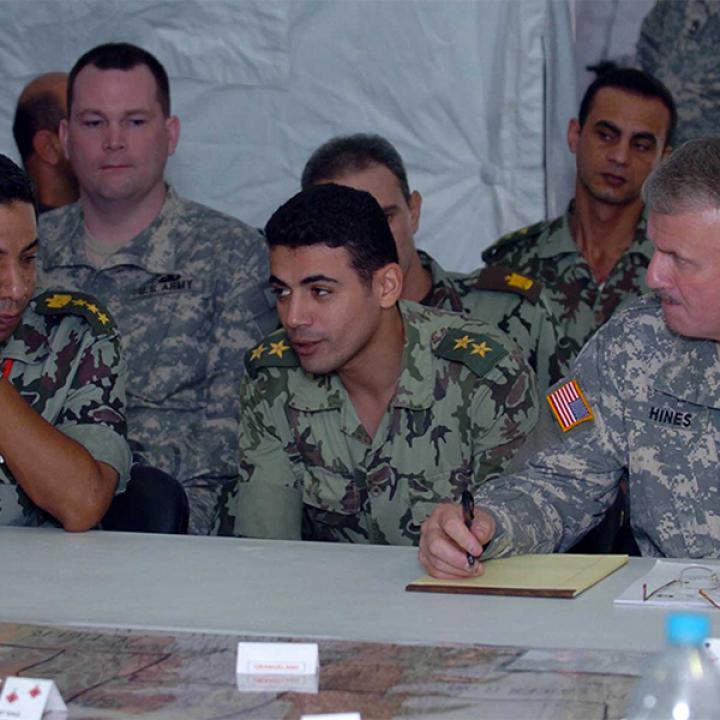

As the Obama administration searches for ways to maintain deterrence in the Persian Gulf, this biannual military exercise represents a high-reward, low-risk option.
For all of the attention that it generated in Washington, the U.S.-Egypt Strategic Dialogue came and went without much fanfare in Egypt. Local newspapers ran sensationalist headlines reporting that Secretary of State John Kerry had evidence of Muslim Brotherhood violence -- Kerry claimed no such thing -- while the deputy editor of a semi-official publication castigated American reporters for asking the Egyptian foreign minister "violent" questions. In the eyes of many Egyptians, the Obama administration sided with the Muslim Brotherhood in 2013, when the military responded to mass protests by toppling President Mohamed Morsi, so Kerry's efforts are viewed as too little, too late.
Yet despite the dialogue's failure to change popular Egyptian perceptions of U.S. policy, Kerry laid the groundwork for reinvigorating the strategic aspect of the bilateral relationship when he acknowledged Washington's readiness to restart Bright Star. This bi-annual military exercise took place more or less consistently since 1980, but it was cancelled in 2011 following the "Arab Spring" uprising that toppled Hosni Mubarak. Until that time, however, it was the centerpiece of the U.S.-Egypt strategic relationship, and its resumption in 2016 should be a no-brainer for three reasons...
The Hill



